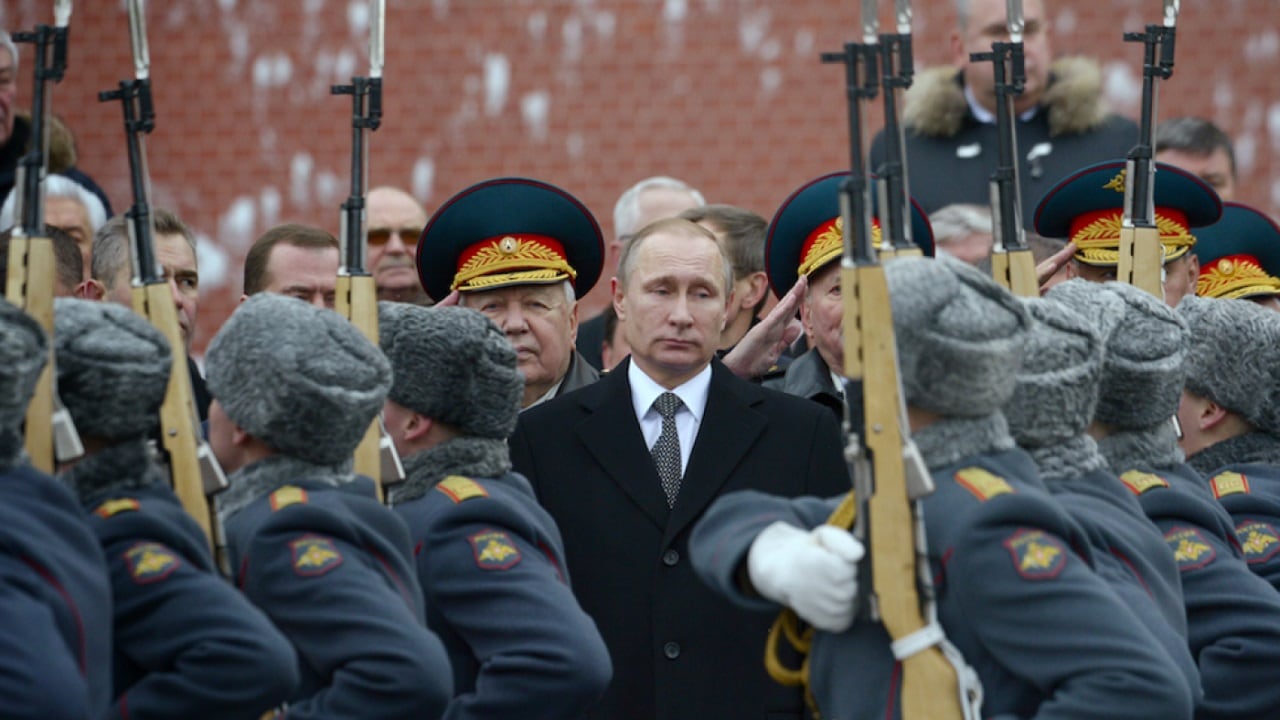A Russian invasion of Ukraine has appeared imminent for almost two months now. Yet it has not happened, and the window for it is closing.
When the spring rains hit in the next month or so, maneuver warfare on the Eurasian plain will be substantially harder. Armored and tracked vehicles will struggle in the mud. Also, maintaining a large force in staging locations at high readiness is expensive, especially in the cold. Russian troops must be fed and housed in the field in temporary facilities at cost.
In short, if Russian President Vladimir Putin wants to invade Ukraine, it must be soon. And yet he has not.
Russia’s Invasion of Ukraine: Why the Delay?
Much of the discussion assumes Putin is engaging in brinksmanship. There is a habit in the Western foreign policy community of reading Putin as some kind of foreign policy grandmaster. This is possible. Putin has trolled the West remarkable well for a decade now. His interventions in Western politics have created widespread anxiety that he supports disruptive populist movements such as Trump’s election in 2016, Brexit, and French rightists.
Putin may also be playing for time. Belligerence and threats may buy him concessions from either Ukraine or NATO. As many have observed, the best outcome for Putin would be some manner of self-induced regime change in Ukraine – a new Ukrainian government willing to publicly abjure NATO membership. An open invasion of Ukraine would violate Putin’s oft-stated belief that Ukraine and Russia are one people who should be in one state. The ideal outcome for Putin would be Ukrainian assent to be a non-aligned, Russia-tilting buffer state.
Increasingly though, these two approaches have backfired. Putin’s bullying of Ukraine has mostly failed as brinksmanship. NATO is fairly united in both opposition to an invasion and a Russian veto on NATO membership. Even Germany is slowly coming around. Similarly, Putin has, paradoxically, energized a sense of Ukrainian nationalism and distinction from Russia. In short, Putin’s options are increasingly shrinking to either invasion or withdrawal. Given the humiliation of a withdrawal without concessions, the best bet is still that Putin will attack. He has painted himself into a corner and is very obviously deeply aggrieved by Russia’s loss of status after the cold war. At this point, he will likely attack if only to demonstrate Russian intransigence and relevance.
Russian Decay
But there is another, more mundane possible reason for Putin’s hesitance: invading Ukraine would be foolish blunder which Russia, much reduced in national power since the ‘glory’ days of the Soviet Union, would struggle to resolve at fair cost. Few dispute that Russia would win such a war, but the cost-benefit calculus does not much support an incursion. Russia would struggle to maintain a conflict which (likely) turned into a counterinsurgency/occupation quagmire, and the global economic punishment of widespread sanctions in response would be punishing. Russians already sense this. Both public opinion and the Russian military elite are deeply uncomfortable with the proposed conflict.
Putin, ironically, is the one most responsible for running down Russian power to that point that occupying Ukraine – a weak, semi-hostile neighbor for which NATO will not fight – is nonetheless a major national challenge. Putin has governed Russia abysmally in his two decades at the top. Russian corruption is now akin to that of third world failed states. Its GDP growth and population growth hover around just 1%. Its GDP per capita is one of the lowest in Europe, as is its life-expectancy. It is ‘governed’ as an oligarchic, kleptocratic petro-authoritarianism. It is no wonder Ukraine seeks Western integration.
Russia’s military has a mostly domestic industrial supply chain, which helpfully insulates it from the sanctions slapped on after its Crimean anchluss in 2014. And its special forces – used in the Crimean landgrab – are widely respected. But the bulk of the Russian army is conscripts whose post-cold war combat record in insurgency-style conflicts like Chechnya has been mixed. It is unclear if that army could sustain a counter-insurgency in Ukraine for years. Red Army behavior in the Afghan counter-insurgency of the 1980s was atrocious. No serious effort to win hearts-and-minds was made, and the war turned into a brutal, unwinnable quagmire. It is easy to see unhappy Russian conscripts itching to go home sliding into the same malaise of disinterest and overreaction in Ukraine.
A Quagmire Made Worse By Russian Decline
Great powers can sustain ‘forever wars’ for a while. The Americans fought in Vietnam and Afghanistan for more than a decade. The French for years in Vietnam and Algeria. The Red Army fought a decade in Afghanistan. These were foolish conflicts, but stupidity is sustainable if the national resources are there to support a misbegotten leadership’s insistence on fighting unwinnable conflicts.
Russia has that truculent, bull-headed leadership, but not the resources – not anymore. With a corrupt, resource-dependent economy smaller than South Korea’s, an invasion could easily become a forever war whose quagmire reverberations would hit Putin’s creaky regime at home. To my mind, this is why Putin has not yet attacked. He knows it would be a huge risk.
Dr. Robert E. Kelly (@Robert_E_Kelly; website) is a professor of international relations in the Department of Political Science at Pusan National University. Dr. Kelly is a 1945 Contributing Editor as well.

